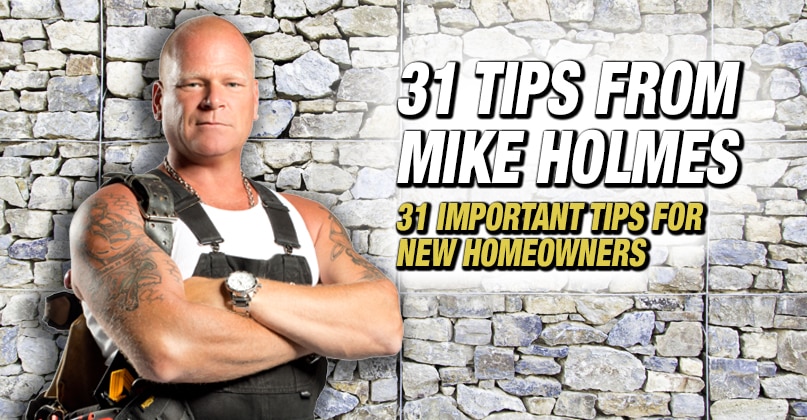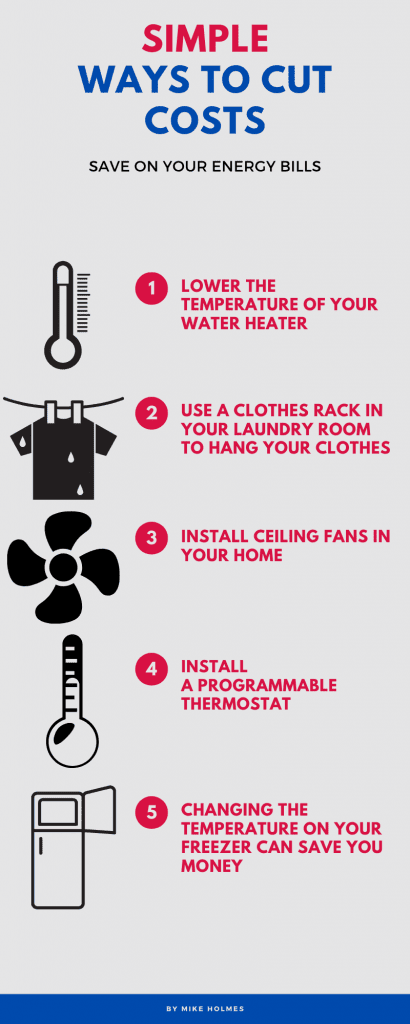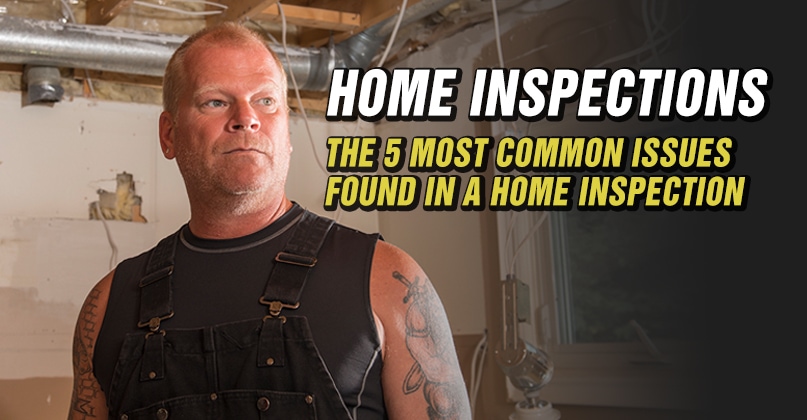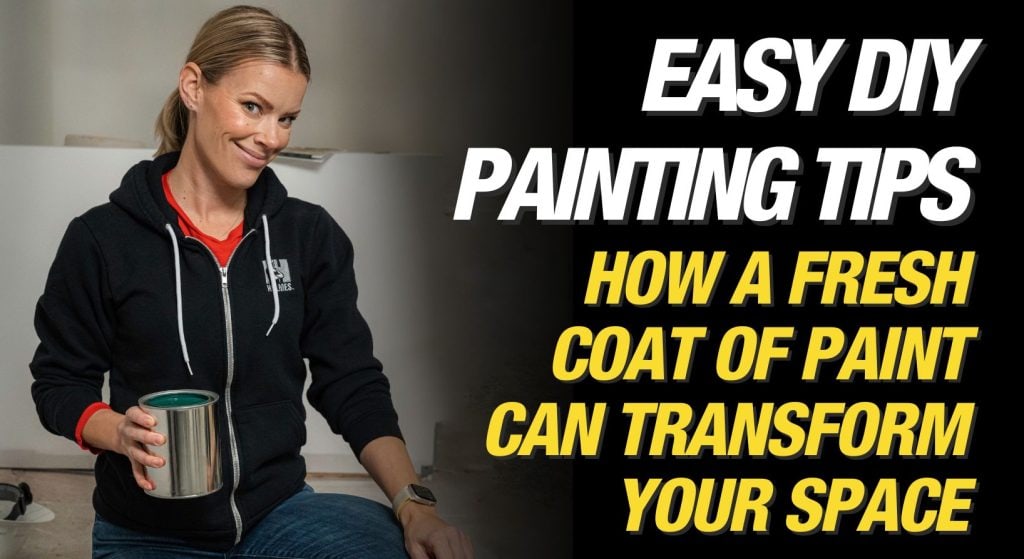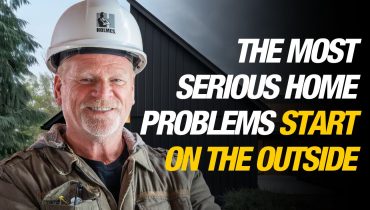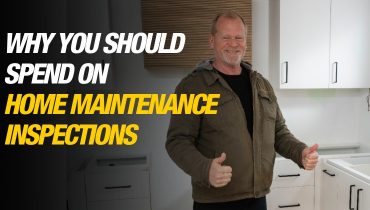When Lisa Marie and I started planning our new primary bathroom, we agreed on one thing right away. We had to use Schluter Systems to ensure the wet-room bathroom waterproofing...
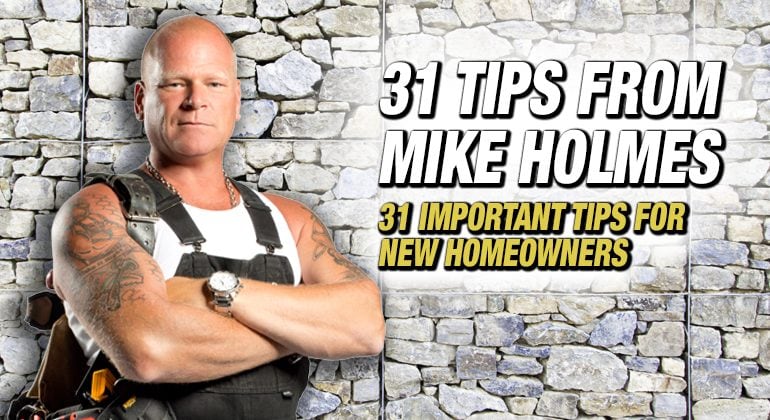
32 Important Tips For New Homeowners
By Mike Holmes
Mike’s Advice / Buying & Selling Your Home
Thursday, June 25th, 2020 @ 4:38pm
Buying a new home? Here are some important homeowner tips you should keep in mind.
HOME MAINTENANCE & REPAIRS
1) Every homeowner should have some basic knowledge about tools—not necessarily to renovate their home themselves, but for smaller projects, like hanging a picture, changing a door, building a shelf, or maybe even doing some interlocking stonework outside.
2) Simple task every homeowner should complete is regular yard maintenance. Raking leaves as they fall – especially in eavestroughs, and around the interlocking stone will help prevent weeds next year.
RELATED
3) As a homeowner, you should change your furnace filter at least once every 3 months—once a month during the winter and summer. And if you’re renovating? Every 2 weeks. If you and/or your family are experiencing symptoms related to poor indoor air quality, I would get a healthy home inspection that includes indoor air sampling.
4) Replace the batteries to your smoke alarm and carbon monoxide detector every time you change your clocks (daylight savings). You should also test them monthly to make sure they’re working.
5) If you suspect mold or moisture in your home, don’t wait to deal with it because you could be compromising your family’s health. If you smell any strange odors in your home – trust your nose.
6) If you want to avoid a leaky foundation keep gardens and plants away from your home’s walls. Planting a garden against your home’s walls might seem nice, however, the soil around the foundation walls has been disturbed and has more airspace. This can create an issue with water and moisture entering your home.
7) An exciting part about buying a house is furnishing & decorating. Before arranging your furniture in your new home be sure not to move furniture or carpets over a cold-air return or else you will suffocate the HVAC system.
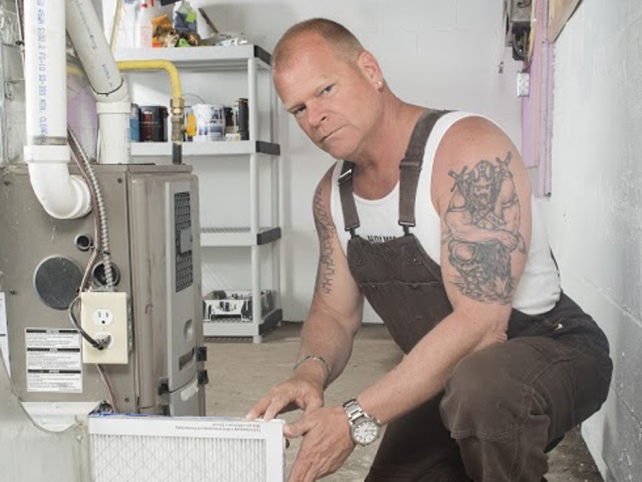
For the system to work, you need good air movement. Keep all vents & grilles clear of obstructions to allow for proper ventilation & even heating or cooling.
8) RELATED
9) Run your bathroom fan 30 minutes after you’ve finished your shower. Also, make sure you crack the door or a window open while the fan runs. If the bathroom is sealed, it restricts airflow & your fan can’t push warm air outside.
10) Keep your eavestrough clean and clear of debris. A clogged eavestrough can prevent water from safely draining away from your home.
11) If your faucet has weak pressure for both hot and cold water you may want to clean your aerator. If the spray pattern is not steady or if the water is shooting off in an odd direction, that might also mean your aerator needs cleaning.
RELATED
12) Did you know the average home loses about 30% of its heat due to drafts? Caulking around windows and doors should be replaced yearly to cut down on heat loss in your home.
13) When hiring your next contractor for home repair or home improvement projects, make sure to ask them for references. You will want to hear from people who have experienced their work firsthand, how the project turned out, and if it was built to last. And any contractor that can’t – or won’t provide them? That’s a red flag.
14) Always keep your eavestrough and downspouts free of leaves and debris.
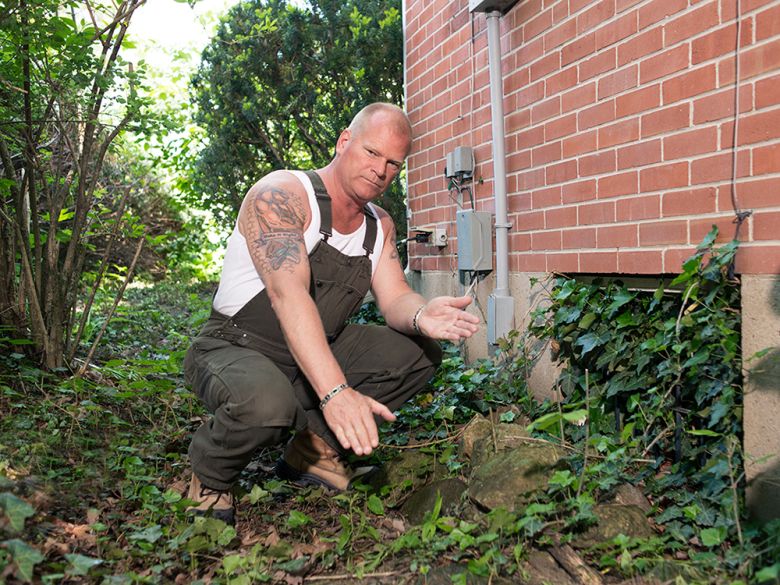
This will help avoid ice build-up.
15) During the fall, just before winter hits, disconnect any outside hoses, store them inside and turn off the water supply to any outside hose.
SAFETY TIPS FOR A NEW HOMEOWNER
16) If you’re going on a vacation don’t post your travel plans and photos online or tell too many people other than neighbors or close friends/relatives that you are heading out of town. This will leave a target on you for thieves to break into your home.
17) Consider installing smart home devices like locks, cameras, and lights that allow you to check in on your home from anywhere. Look for devices that can all work together to make your home look occupied or alert you of any unusual activity.
18) During the winter, clear all walkways to ensure they are free of ice, snow, and any debris. Slipping and tripping hazards can be easily avoided with this practice.
19) Every homeowner should always keep a fire extinguisher nearby when you are cooking. It’s also a great idea to have a first aid kit handy and a fire safety plan.
20) There’s a higher risk of electrical fires over the winter months. Make sure you’re plugging into GFCI-protected circuits. And keep an eye on how much load you’re plugging in, to avoid an overloaded circuit.
21) Never try to use alternative heat sources like the oven or barbecue to warm up inside the home or garage during a power failure.
22) Adjust the settings on your humidifier, and regularly monitor the humidity levels depending on the outside temperature.
23) Spending a lot of time in a tightly sealed space with no ventilation, like your home during the winter months, can impact your health.
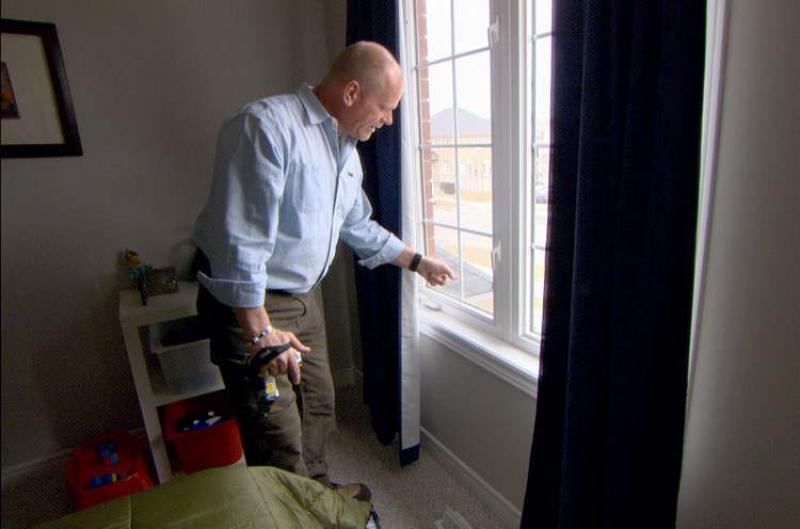
Open up your windows for 10-15 minutes every day to promote ventilation.
24) Always make sure you clean the lint trap in the dryer and have the dryer vent cleaned properly. If they are not cleaned properly and become clogged you can be left with a lot of problems, not to mention a possible fire or carbon monoxide poisoning.
25) Use your landscaping to help block out heat in the summer and cold wind in the winter. You can install awnings – those exterior coverings on top of windows. They’re like a visor for your home. In some environments, they can reduce heat gain by about 55-77% and save homeowners as much as 25% on energy bills.
26) Did you know your ceiling fan’s orientation makes a difference? When the blades spin clockwise, cool air is pulled up, while it’s pushed down when running counterclockwise. If you want to keep your thermostat a little higher this summer and save a bit of energy, keep your fan spinning counterclockwise.
27) Changing the temperature of your freezer can save money on your energy bill. Set it to -18C, even a 5-6C cooler can use up to 25% more energy.
RELATED
WHAT YOU- A NEW HOMEOWNER NEED TO KNOW BEFORE MOVING IN
28) Don’t overspend on furniture and remodeling – give yourself time to adjust to the new expenses of homeownership.
29) Don’t ignore crucial home maintenance items – don’t neglect problems that can potentially put you in danger or could get worse over time.
30) Hire qualified contractors.
31) Prioritize the renovations that will improve your home’s energy efficiency
32) Get a home inspection so you can get an idea of the health of your home. A home inspection can give you a good overview of the condition of the home and highlight any major deficiencies.
RELATED
